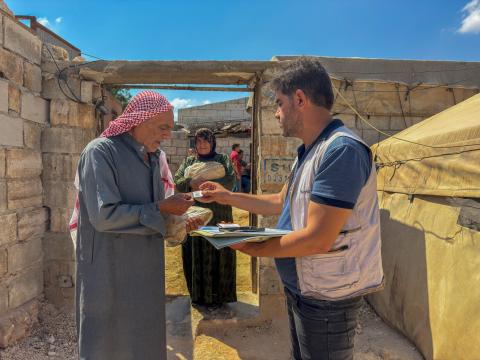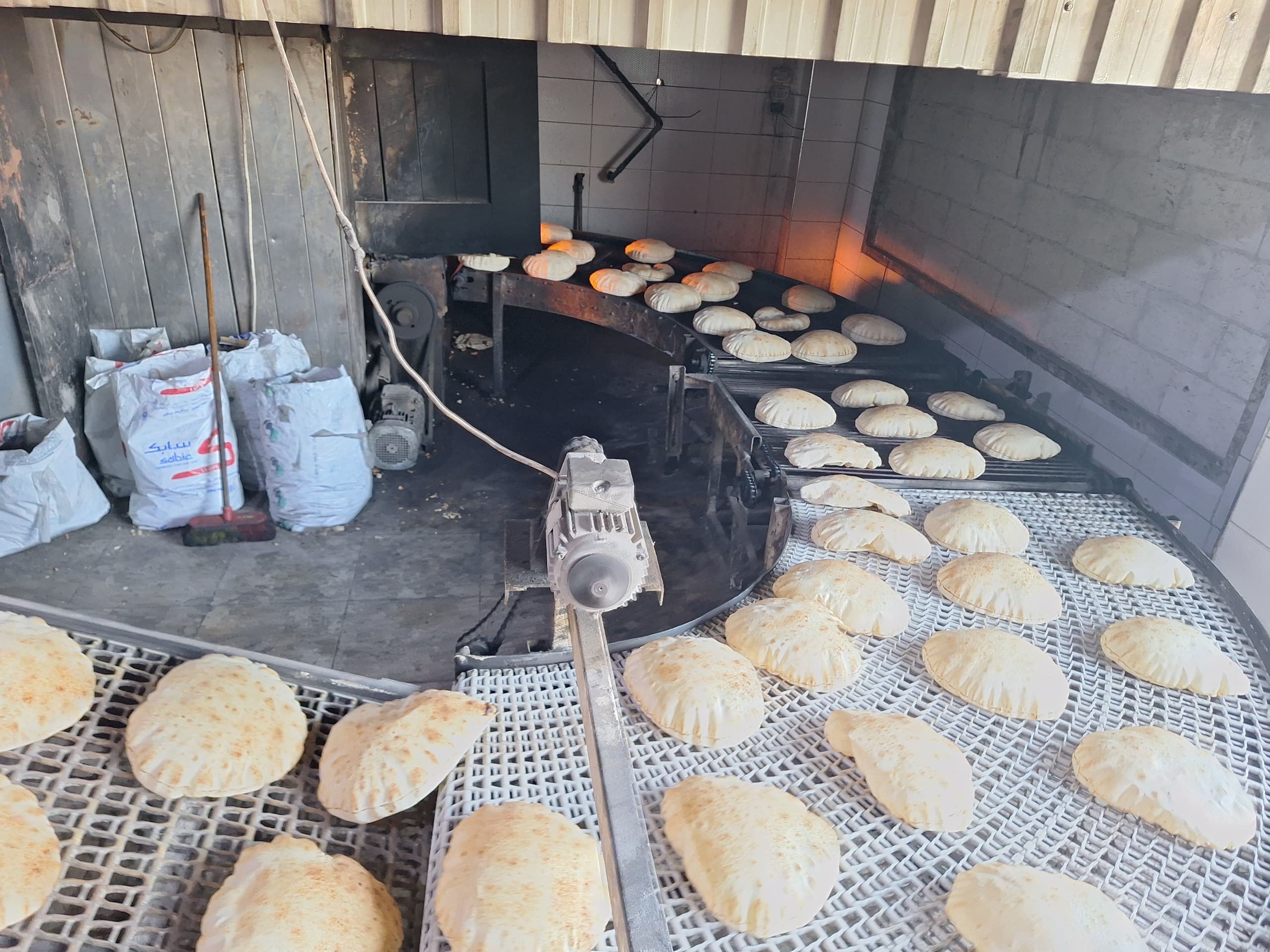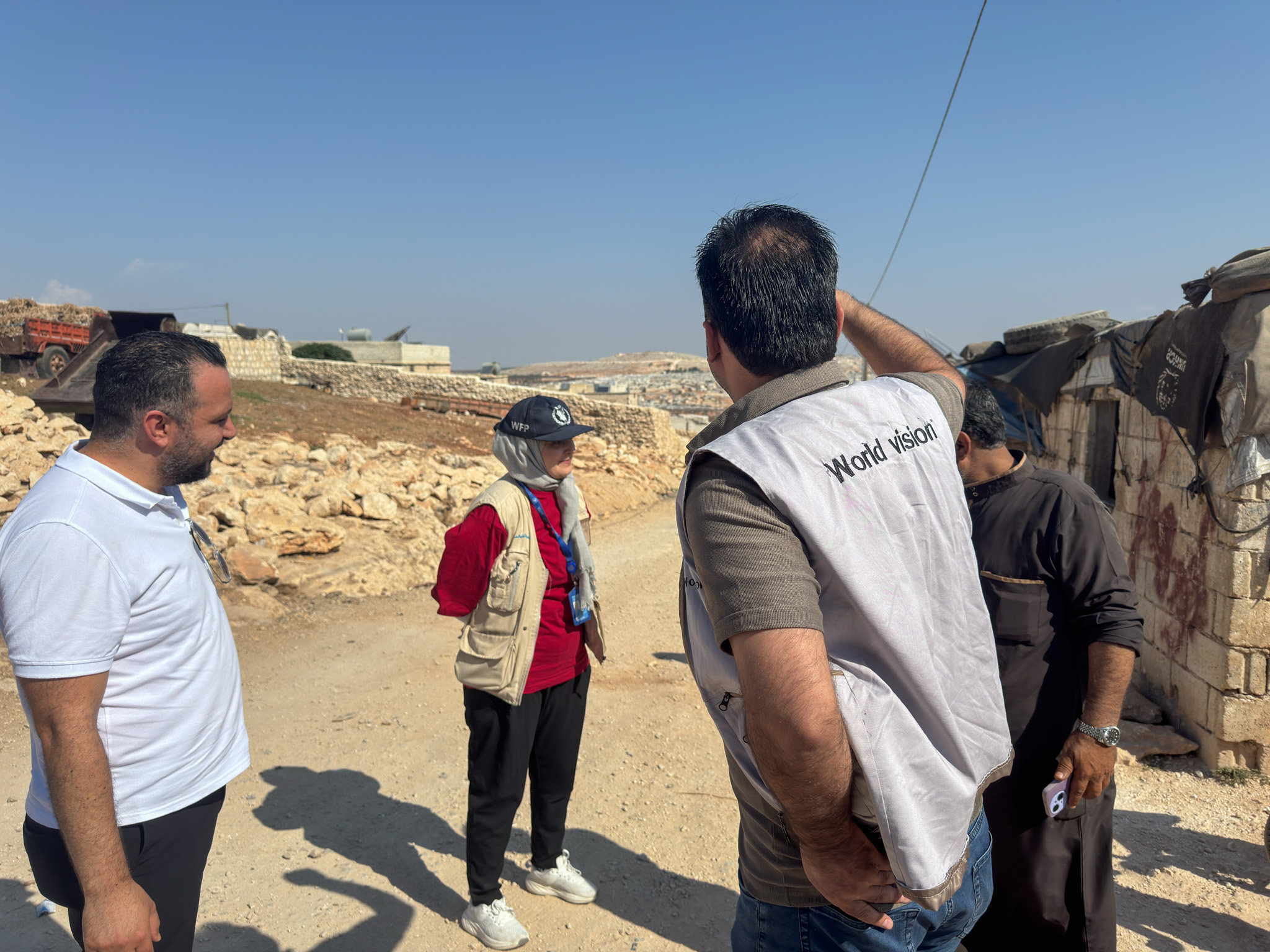The Breadline of Survival:Syria Struggle and Strength

Food Insecurity and a Global Push to Say ENOUGH
More than 14.5 million people face food insecurity in Syria, including 9.1 million acutely and 1.4 million severely food insecure. Agricultural livelihoods have been severely disrupted, with wheat and barley yields in rainfed areas like Aleppo and Idlib dropping by over 95%. Malnutrition is rising sharply, with more than 600,000 children under five acutely malnourished. Service gaps are deepening. Funding cut has left 40,000 children and 18,000 pregnant and breastfeeding women without life-saving care.
In the relentlessly packed and struggling displacement camps in Northwest Syria, bread is far more than food — it is survival, dignity, and the fragile thread that holds families together. Since December 2024, more than 745,000 Syrians have returned from neighbouring countries, joined by 1.5 million internally displaced people who have made their way back home — a sign of growing hope in the face of prolonged conflict. Yet, for many returnees and local residents, that hope is quickly tested. Access to basic services remains painfully limited, making daily survival a struggle and threatening the fragile progress toward recovery.
In response to the deepening hunger crisis, the World Food Programme (WFP) in partnership with World Vision, launched a six-month emergency bread support initiative. WFP is World Vision’s largest donor and together we have implemented life-saving activities across Syria. The initiative is implemented in 150 displacement camps in Northwest Syria (NWS).
Among many communities, bread is far more than essential — it is the foundation of nourishment and a symbol of survival, dignity, and hospitality. Offering bread is a gesture of respect and generosity; while sharing it reflects deep-rooted traditions of welcome and solidarity. Often regarded as a blessing, wasting it is seen as deeply disrespectful.
Across Syria, the daily quest for bread has become increasingly desperate. This year, a severe drought — the worst in 36 years — scorched the land, slashing wheat production by 40% and leaving a national shortfall of 2.7 million metric tons. Once the heart of Syria’s food system, wheat fields now lie barren. Families are left to navigate overstretched markets and shrinking humanitarian aid, as the backbone of food security crumbles beneath them.
Through the initiative, we reached over 40,000 people, delivering not just bread, but a lifeline in the midst of crisis. This initiative went beyond meeting immediate food needs and restoring dignity — it also helped rebuild local resilience.
By engaging 12 bakeries and a network of 100 camp-based distributors, the program fostered livelihoods, strengthened community ties, and supported small-scale economic recovery within the camps.
Ali Hussein Al-Hussein, 38, a displaced father with 5 children living in a camp in Northwest Syria, shared:

"When we receive bread through this initiative, I feel as if my home still stands despite everything we’ve lost. I can see the smiles return to my children’s faces. For us, bread is essential. It represents dignity and without food we lose one of our basic rights."
Each bag of bread covers 30–40% of a household’s daily needs — meeting just over half of the total demand across the camps. While it doesn’t fully meet nutritional requirements, it offers critical relief from hunger and helps families stretch their limited resources in an increasingly fragile environment.

From fire to table, each loaf carries hope. Despite challenges, bakeries like Al-Khair and Shamsin continue to ensure no family goes without bread — keeping life’s most basic staple within reach of every home. With the support of WFP and WVSR, such projects are lifelines.
Omar Abdullah, Owner of Al-Khair 3 Bakery in Northwest Syria, said:
"Despite all the challenges, seeing families receive their bread is the greatest reward that makes every effort worthwhile. We are here to stand with the community and ensure that no home is ever without a loaf."
Omar Abdullah continued and said:
“This bread initiative has eased the burden of daily expenses, giving me the chance to buy fruits and vegetables for my children and allowing me to keep them in school without the fear of them dropping out."
For displaced families who have lost homes, land, and livelihoods, a warm piece of bread offers comfort, continuity, and the reassurance of tomorrow’s meal.
The World Food Programme (WFP) is the largest humanitarian organization working in Syria, supporting millions of vulnerable people every month. Beyond bread production, WFP provides life-saving food assistance, nutrition support for children and mothers, school meals to keep education accessible, and cash-based transfers that help families meet their needs with dignity. Through these efforts, WFP not only addresses urgent hunger but also strengthens resilience and stability for communities facing years of conflict and displacement.

In humanitarian crises, partnerships are not just strategic — they are life-saving. Together, World Vision (WV) and WFP ensure that bread reaches families who might otherwise go hungry. As part of World Vision’s ENOUGH global campaign, this initiative amplifies a global call — to end hunger, restore dignity, and protect the most vulnerable. Because when families are forced to choose who eats and who doesn’t — enough is absolutely enough.
Finally, food security efforts must not only be sustained — they must be scaled up. At a time when international funding is shrinking and humanitarian needs are surging, bread distribution stands out as a proven, cost-effective intervention. It helps curb hunger, protects families from falling deeper into poverty, and reinforces community resilience in the face of crisis.
Let’s work together and say ENOUGH to hunger!